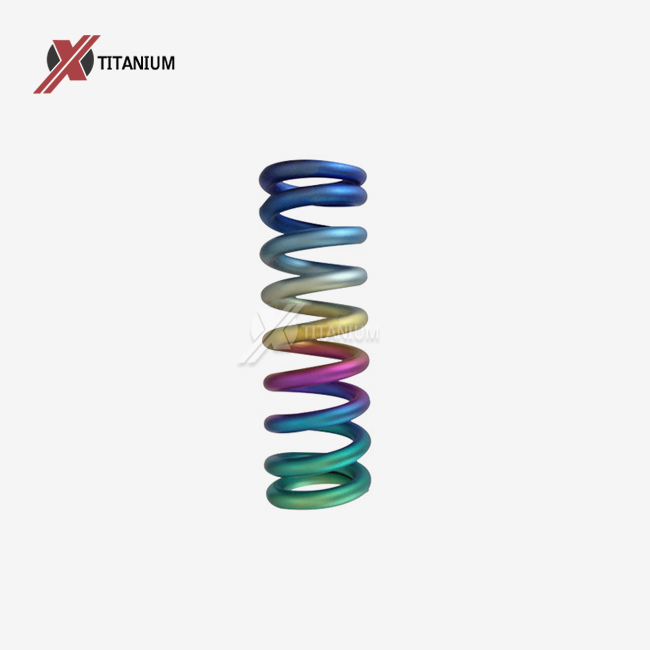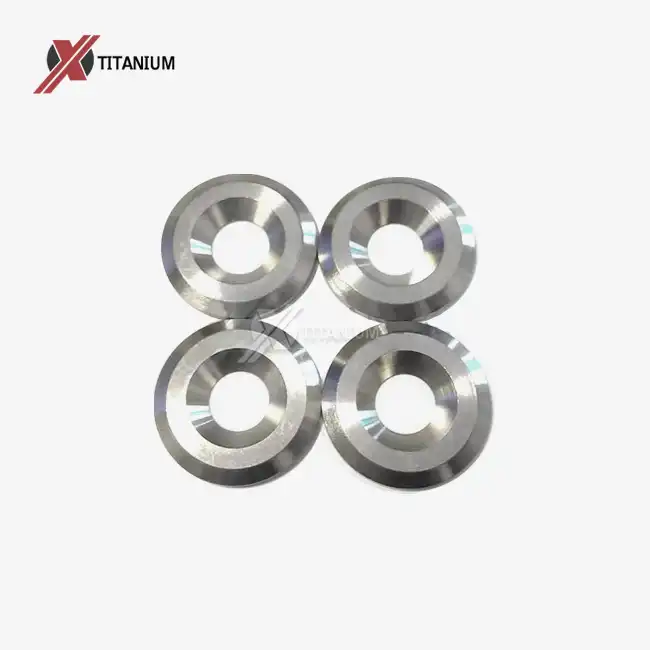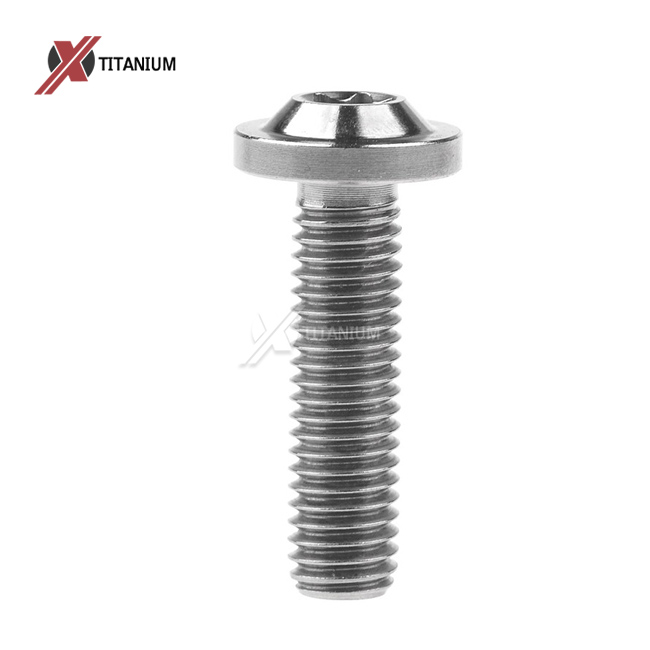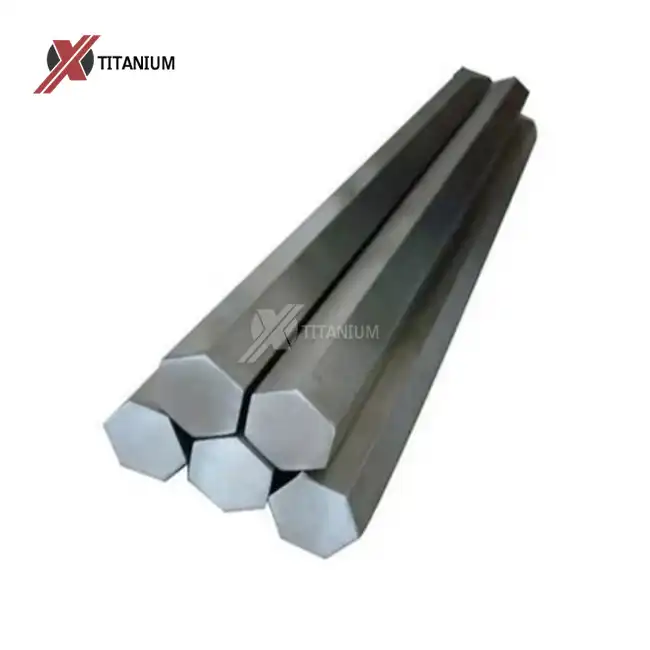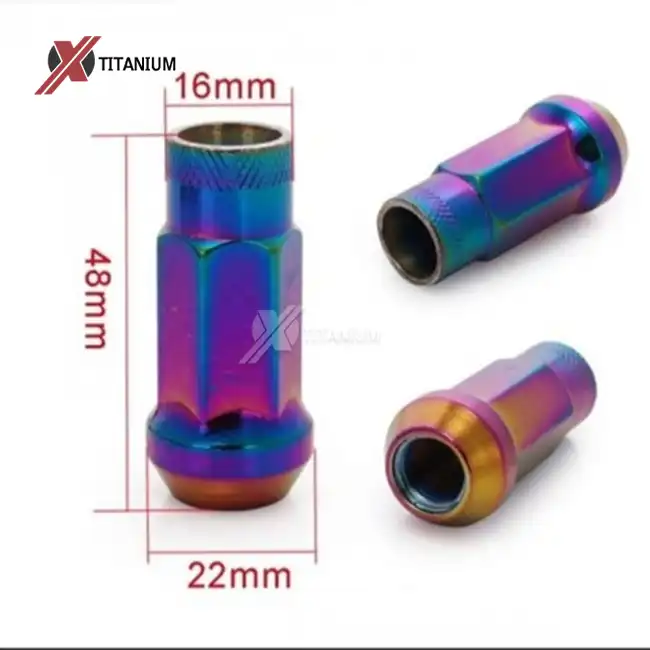Introducing the Unique Properties of Titanium Springs
Titanium springs possess a remarkable set of characteristics that set them apart from springs made of other materials. The inherent properties of titanium alloys contribute to the superior performance of these specialized components in various applications.
Exceptional Strength-to-Weight Ratio
One of the most notable features of titanium springs is their impressive strength-to-weight ratio. Titanium alloys offer comparable strength to steel but at nearly half the density. This property allows for the creation of lightweight yet robust springs that can withstand significant loads and stresses. In applications where weight reduction is crucial, such as aerospace or high-performance racing, it provides an optimal solution without compromising on strength or durability.
Corrosion Resistance and Biocompatibility
Titanium's natural resistance to corrosion makes it an excellent choice for springs used in harsh environments or applications exposed to corrosive substances. The formation of a stable oxide layer on the surface of titanium protects it from chemical attack, ensuring long-lasting performance even in challenging conditions. Additionally, titanium's biocompatibility makes it ideal for medical applications, where springs may come into contact with bodily fluids or tissues. This property reduces the risk of adverse reactions and allows for the development of innovative medical devices and implants.
Temperature Tolerance and Fatigue Resistance
Titanium springs maintain their mechanical properties across a wide range of temperatures, from cryogenic to elevated levels. This temperature stability ensures consistent performance in diverse operating conditions. Furthermore, titanium exhibits excellent fatigue resistance, allowing springs to endure repeated cycles of stress without significant degradation. This characteristic is particularly valuable in applications requiring long-term reliability and sustained performance, such as in aerospace components or industrial machinery.
Customization Options for Titanium Springs
The versatility of titanium allows for extensive customization options when designing and manufacturing springs. By tailoring various parameters, engineers can create titanium springs that precisely meet the requirements of specific applications.
Alloy Selection and Heat Treatment
Different titanium alloys offer varying mechanical properties, allowing for the selection of the most suitable material for a given application. Common alloys used for springs include Grade 5 (Ti-6Al-4V) and Beta C, each with its own set of characteristics. Heat treatment processes can further modify the properties of titanium springs, enhancing strength, ductility, or fatigue resistance as needed. Through careful alloy selection and heat treatment optimization, manufacturers can fine-tune the performance of products to meet specific requirements.
Geometric Design and Dimensional Precision
The geometry of a titanium spring plays a crucial role in its performance. Custom springs can be designed with precise dimensions, including wire diameter, coil diameter, free length, and number of active coils. These parameters influence the spring rate, load-bearing capacity, and overall behavior of the component. Advanced manufacturing techniques, such as CNC coiling and precision forming, enable the production of products with tight tolerances and complex geometries. This level of customization allows for the creation of springs that fit perfectly within constrained spaces or exhibit specific deflection characteristics.
Surface Treatments and Coatings
While titanium naturally possesses excellent corrosion resistance, additional surface treatments can enhance its properties for specific applications. Anodizing, for instance, can create a harder surface layer and allow for color coding of springs. Nitriding processes can improve wear resistance and surface hardness, extending the lifespan of titanium springs in high-friction environments. Specialized coatings may also be applied to modify friction coefficients or provide electrical insulation. These surface modifications expand the range of applications for titanium springs and can be tailored to meet unique performance requirements.
Applications and Industries Benefiting from Custom Titanium Springs
The exceptional properties and customization options of titanium springs make them valuable components across a wide range of industries and applications. Their unique characteristics address specific challenges and enable innovative solutions in various fields.
Aerospace and Defense
In the aerospace industry, weight reduction is paramount, and titanium springs offer an ideal solution. These components find applications in landing gear assemblies, control surface actuators, and vibration damping systems. The high strength-to-weight ratio of titanium springs contributes to improved fuel efficiency and payload capacity in aircraft. In defense applications, they are utilized in firearms, missile guidance systems, and military vehicles, where reliability and performance under extreme conditions are critical.
Medical and Biomedical Devices
The biocompatibility and corrosion resistance of titanium make it an excellent choice for springs used in medical devices and implants. Customized titanium springs are employed in orthopedic implants, dental instruments, and surgical tools. They play crucial roles in devices such as pacemakers, where long-term reliability and compatibility with body tissues are essential. The ability to sterilize products without degradation further enhances their suitability for medical applications.
Automotive and Motorsports
High-performance vehicles and racing cars benefit significantly from the use of titanium springs. These components offer weight reduction in suspension systems, valve trains, and other critical areas, contributing to improved handling and acceleration. The fatigue resistance of titanium springs ensures consistent performance over extended periods, making them ideal for endurance racing applications. In the broader automotive industry, titanium springs find use in specialized applications where weight savings and durability are prioritized.
Industrial and Chemical Processing
The corrosion resistance of titanium springs makes them valuable in chemical processing equipment and industrial machinery exposed to aggressive environments. They are used in pumps, valves, and sealing systems where traditional materials would quickly degrade. Titanium springs also find applications in offshore oil and gas equipment, where resistance to saltwater corrosion is crucial. The ability to withstand high temperatures and maintain mechanical properties makes products suitable for use in heat exchangers and other high-temperature industrial processes.
Consumer Electronics and Precision Instruments
In the realm of consumer electronics and precision instruments, titanium springs offer advantages in terms of miniaturization and reliability. They are used in high-end audio equipment, camera mechanisms, and scientific instruments where precise, consistent performance is required. The non-magnetic properties of certain titanium alloys make them suitable for applications sensitive to electromagnetic interference.
Conclusion
Custom titanium springs represent a pinnacle of engineering, combining the exceptional properties of titanium with tailored design to meet specific application needs. Their versatility, durability, and performance characteristics make them invaluable across a wide range of industries. As technology advances and new challenges emerge, the demand for specialized products continues to grow. By partnering with experienced manufacturers and leveraging the latest in materials science and engineering, businesses can harness the full potential of custom titanium springs to drive innovation and enhance product performance.
For more information on custom titanium springs and how they can benefit your application, please contact us at info@cltifastener.com or djy6580@aliyun.com. Our team of experts is ready to assist you in developing the perfect titanium spring solution for your unique requirements.
